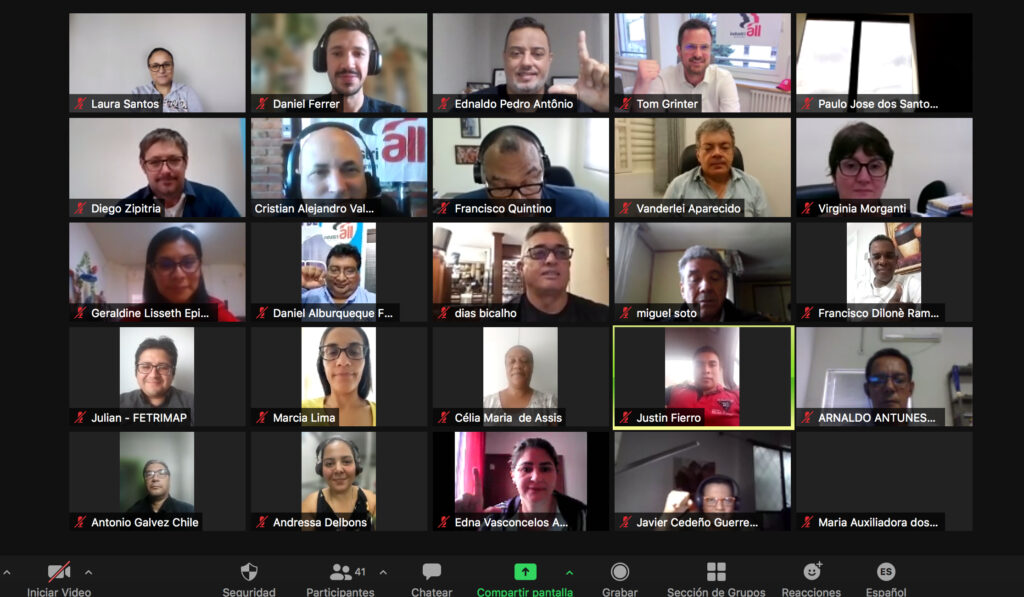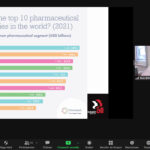Read this article in:
English
19 May, 2022IndustriALL's affiliate unions in the chemicals, petrochemicals, pharmaceuticals and plastics sector met to plan their work for the year ahead and come up with coordinated regional policies and actions.
The online event was attended by Lucineide Varjão, IndustriALL Global Union’s Vice President for Latin America and the Caribbean and chair of the executive committee of IndustriALL affiliate CNQ/CUT. She spoke about how important the chemicals sector is for IndustriALL and about the need for policies and actions that will strengthen the sector in the region.
President of FEQUIMFAR and joint president of IndustriALL’s chemicals sector, Sergio Luis Leite, was also present. He highlighted the role that workers in the health sector and pharmaceuticals industry played in supporting the global population during the pandemic, stating that they were true heroes in the fight against COVID-19. He explained that the aim of the meeting was to discuss the situation of the chemicals sector both globally and regionally in order to come up with a programme of work for this year and the next.
Daniel Ferrer, an economist from Brazil's Inter-Union Department of Statistics and Socioeconomic Studies (Dieese), was invited to speak about the chemicals sector at the regional level. He said that the outlook for the region's chemical and pharmaceutical sector in 2022 was good, given the high demand for pharmaceutical products.
However, he added that Latin America was the region that had seen the largest decline in market share in the sector (–41.2%), while China had experienced solid growth. The region's market share will remain at 2.7% up to 2030, with growth in the region’s chemicals market expected to be stagnant.
When asked about the role of women in the chemicals sector in Latin America and the Caribbean, Ferrer explained that the segment with the lowest proportion of women was alcohol and biofuels, while the hygiene and cosmetics segment had the highest proportion.
Tom Grinter, the director of IndustriALL's chemicals, petrochemicals, pharmaceuticals and plastics sector, provided an overview of the international
chemicals market, adding that growth would be strongest in the Asia Pacific region.
He also spoke about IndustriALL's work worldwide. He described the campaigns to make workplace safety a fundamental right, the work being done by European unions to bring in legislation on due diligence along the supply chain, and the global campaign against violence and bullying in the workplace.
Lastly, IndustriALL's deputy regional secretary, Cristian Alejandro Valerio, invited unions from the sector to attend the meetings of the manufacturing macro sector in September, the seminar on regional manufacturing policies to be held in July and the seminars on gender-based violence in the chemicals sector to be run by IndustriALL in August. He called on union leaders to join the regional networks of workers for each sector and sub-sector that would be set up after the meeting.
Tom Grinter, director of IndustriALL's chemicals sector, concluded by saying:
"IndustriALL's affiliates in the region represent chemicals and pharmaceutical workers from all countries and at major multinational companies. The network is filled with admirable leaders and workers who are committed to building international solidarity. We have come up with an ambitious workplan that is in line with our strategic aims."





